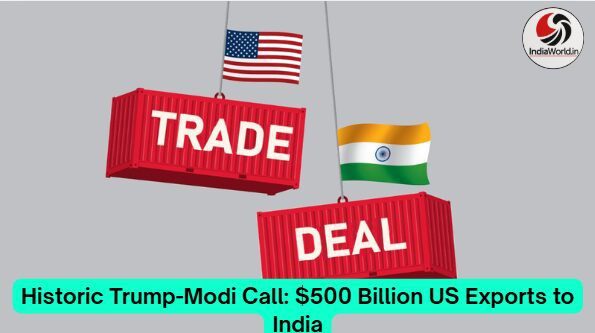Is OpenAI’s $300 Billion Oracle Deal Fueling an AI Bubble?
OpenAI’s groundbreaking $300 billion cloud computing deal with Oracle has sent shockwaves through Wall Street, sparking both excitement and concern. While the partnership promises massive infrastructure growth for AI development, experts warn it may be inflating an unsustainable AI bubble. With Oracle’s stock soaring and financial risks mounting, this deal could reshape the future of artificial intelligence—and investor confidence.
A Deal That Shook the Tech World
In a move that stunned the tech and finance sectors, OpenAI signed a colossal $300 billion cloud computing agreement with Oracle, set to begin in 2027. The five-year deal is one of the largest in tech history and has already triggered a 36% surge in Oracle’s stock price. It even briefly made Oracle’s chairman, Larry Ellison, the richest person in the world.
But behind the celebration, a growing chorus of experts is sounding the alarm. Is this deal a bold leap into the future of AI—or the peak of a dangerously inflated bubble?
🧠 What the Deal Means for AI Infrastructure
Oracle’s partnership with OpenAI is centered around providing massive computing power—roughly 4.5 gigawatts, enough to power millions of homes. This infrastructure will support OpenAI’s next-generation models and projects like Stargate, a $500 billion initiative backed by Oracle, SoftBank, and others.
The deal positions Oracle as a serious contender in the AI cloud space, challenging giants like Microsoft Azure and Amazon Web Services. Oracle’s access to top-tier Nvidia GPUs, thanks to Ellison’s relationship with Nvidia CEO Jensen Huang, has helped it leapfrog competitors in AI hardware provisioning.

📈 Oracle’s Skyrocketing Projections—and Risks
Oracle has projected $455 billion in future contracts over the next five years—a staggering 359% increase from last year. But here’s the catch: most of that projection hinges on one client—OpenAI.
This heavy reliance raises red flags. OpenAI’s current annual revenue is around $12 billion, a fraction of the contract’s value. And since these contracts are classified as “remaining performance obligations” (RPOs), they’re not guaranteed income. OpenAI could delay, renegotiate, or cancel portions of the deal.
🚨 Bubble Warnings from Industry Experts
Concerns about an AI bubble aren’t new, but this deal has intensified them. A recent MIT study revealed that 95% of AI pilot projects fail to deliver meaningful results, despite over $40 billion invested in generative AI.
Even OpenAI CEO Sam Altman has acknowledged the possibility of a bubble in the private AI market. AI expert Gary Marcus called the Oracle deal “peak bubble,” questioning the logic of a trillion-dollar market cap driven by a non-binding agreement with a client that may not have the funds to fulfill it.
💬 Critics Speak Out
Several industry voices have expressed skepticism:
- Ed Zitron, CEO of EZPR, called the deal “a grotesque attempt to mislead investors,” predicting OpenAI could run out of cash within a few years.
- Ophir Gottlieb, CEO of Capital Market Laboratories, questioned the math: “OpenAI has $10B in revenue but will spend $60B/year in CapEx for five years. What?”
These concerns highlight the fragile foundation of the deal and its potential ripple effects across the tech sector.

🔄 Impact on Microsoft and Cloud Competition
Until now, OpenAI’s cloud operations were closely tied to Microsoft Azure. This new deal with Oracle signals a shift in strategy—OpenAI is diversifying its infrastructure to avoid dependence on a single provider.
Microsoft still holds a deep financial stake in OpenAI and remains a key distribution channel for its models. But losing exclusivity could impact Azure’s future revenues and its position in the AI arms race.
🧱 Project Stargate: The Bigger Picture
The Oracle-OpenAI deal is part of Project Stargate, a massive infrastructure initiative aimed at building domestic data centers and powering advanced AI systems. Backed by Oracle, SoftBank, and reportedly supported by President Trump, the project reflects the geopolitical and economic importance of AI infrastructure.
With plans to invest $500 billion over four years, Stargate could reshape global AI capabilities—but only if the financial and technical hurdles are overcome.
📊 Financial Fragility and Investor Sentiment
Despite the hype, the financial structure of the deal is shaky. Oracle may need to take on significant debt to deliver on its promises, while OpenAI’s spending far outpaces its revenue. This imbalance has led some analysts to label the deal a “house of cards”.
Investor sentiment is mixed. While Oracle’s stock soared initially, it later dipped as investors took profits and reassessed the risks.
🧠 What This Means for the Future of AI
This deal underscores a broader trend: the race to dominate AI is increasingly driven by infrastructure, not just algorithms. Companies are betting big on compute power, data centers, and hardware partnerships.
But with so much money riding on uncertain returns, the question remains—are we building the future, or inflating a bubble that’s bound to burst?
🧭 Final Thoughts: Bold Vision or Risky Gamble?
OpenAI’s $300 billion deal with Oracle is undeniably bold. It reflects the scale of ambition driving the AI revolution—but also the fragility of its financial underpinnings. As the tech world watches closely, this partnership could either cement a new era of AI dominance or serve as a cautionary tale of overreach.
If you’re a creator, investor, or tech enthusiast, now’s the time to stay informed and think critically. The future of AI isn’t just about innovation—it’s about sustainability, strategy, and smart execution.








